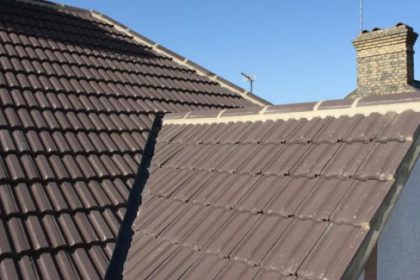 What Factors Can Affect Your Roof’s Lifespan?
What Factors Can Affect Your Roof’s Lifespan?
Your roof does an amazing job of protecting you from the elements — but it won’t carry on doing so indefinitely. Sooner or later it will wear out and need to be replaced.
Replacing your roof is a major job, though, so the longer it can last before reaching the end of its life, the better. So what factors can affect your roof’s lifespan?
The Roofing Materials Used
There are numerous different materials you can use to provide a roof for your home. The most popular ones will be to a large extent equally effective when new, but there’s a wide difference between how long they last. Some of the main ones are:
- Slate — One of the most durable of all roofing materials, a slate roof should last a minimum of 75 years. In fact, there are slate roofs still going strong after 200 years.
- Clay tiles — Perhaps the most familiar of all roofing materials, clay tiles are only a little less durable than slate. A clay-tile roof can last up to 100 years.
- Metal roofing — Various metals are used for roofing, the most common being copper, steel and aluminium. A metal roof can last for 50 years or more. Metal is also used for flashing, and sealing up gaps.
- Felt roofing — The usual roofing material for flat roofs, felt will typically last 15-20 years. However, coating it with liquid rubber can extend your flat roof’s life to over 30 years.
Climate Conditions
The typical climate in your area can make a difference in how much battering your roof takes, and therefore how long it lasts. If you’re on the coast, for example, with storms regularly blowing in from the sea, your roof might not last as long as a similar one in a sheltered location.
On the other hand, the sun on the roof can also shorten its life. If your roof receives too much light and heat, and especially UV rays, this could cause deterioration in the materials. This makes the orientation of your roof crucial.
Roof Maintenance
High-quality roofing materials will last a long time, but they’ll still get regular battering — so they need maintenance. Your roof needs to be inspected routinely a couple of times a year, as well as after any extreme weather, such as a storm. Carrying out minor repairs at once, such as replacing missing tiles or fixing damaged flashing, will not only prevent moisture from getting into your home but also extend the life of your roof.
It’s vital, however, that the maintenance is done correctly. While there are a few minor jobs, such as cleaning out the guttering, that an expert DIYer might be able to manage to the required standard, in general, roofing repairs should be left to the specialists.
Standard of Installation
Good-quality materials are necessary to make your roof last, but materials alone don’t make a great roof. Whether it’s a pitched roof of slates or tiles or a flat liquid rubber roof, it needs to be installed by experts. Otherwise, even the toughest components might start coming apart at the seams.
That’s why it’s vital to choose a roofing company with an excellent track record of customer satisfaction that’s willing to back up its claims with a substantial guarantee. Get in touch with us to find out how Empire can help your roof last longer.
Learn everything you should know about waterproof flat roofs here.









